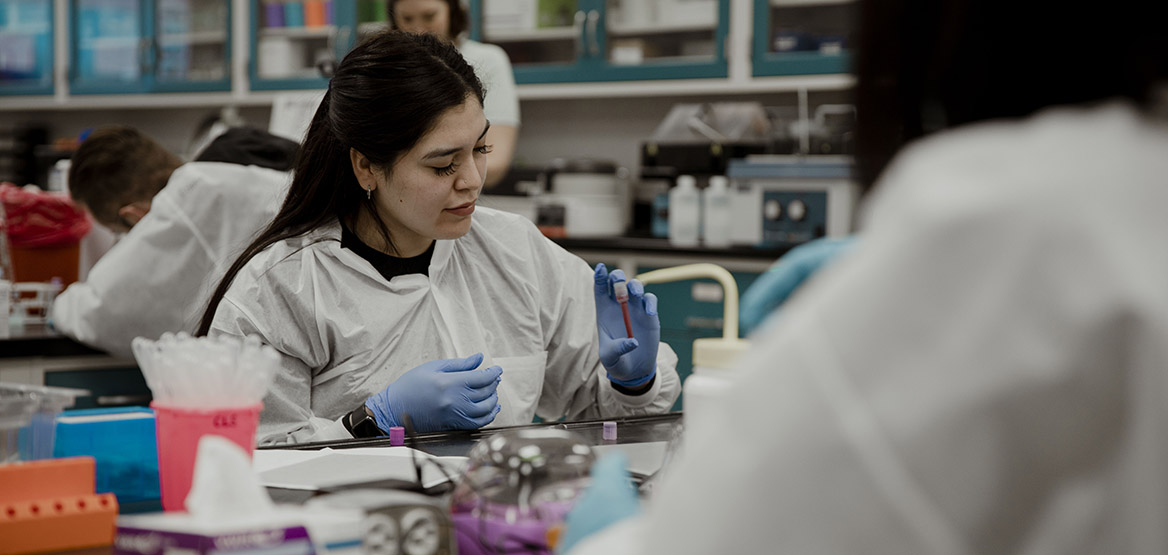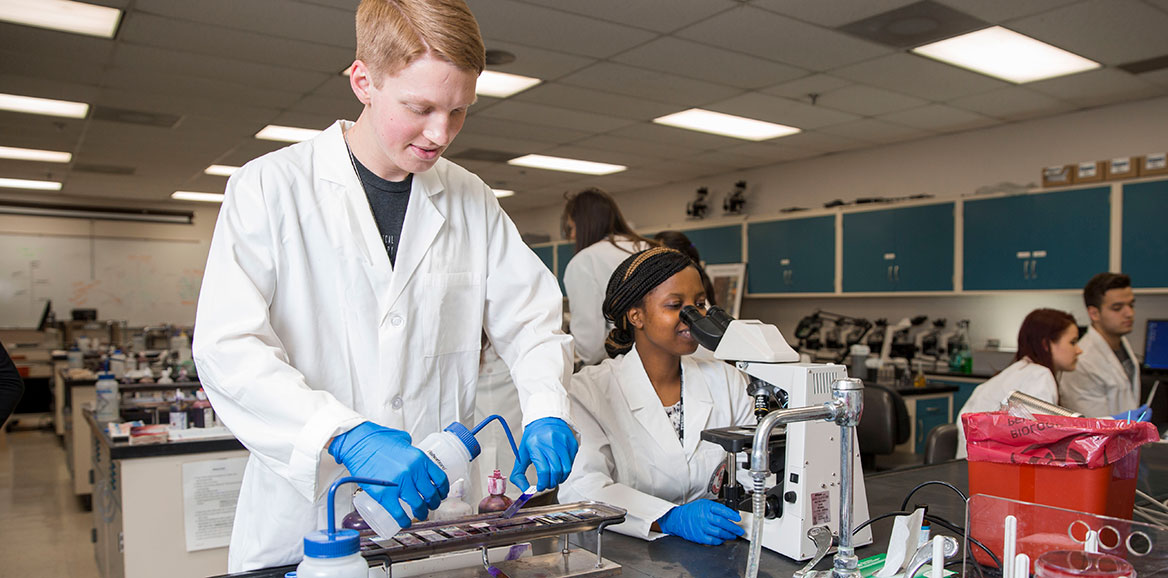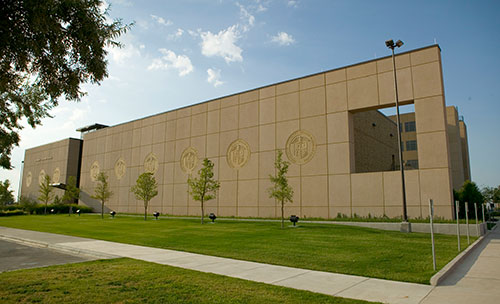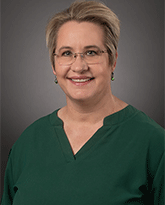Bachelor of Science in Medical Laboratory Science

What is Medical Laboratory Science?
Medical Laboratory Science is the study and practice of diagnostic laboratory medicine and is one of the most dynamic professions in health care today. Medical laboratory scientists analyze body tissues, fluids, and other substances using complex instrumentation, sophisticated techniques, and specialized knowledge. As key members of the patient care process, medical lab scientists provide 70% of the critical objective information for diagnosis, treatment, and preventative health care.
About the Bachelor of Science in Medical Laboratory Science
The TTUHSC Bachelor of Science Medical Laboratory Science is a fully accredited, 2+2 degree program that trains you in clinical laboratory skills and techniques, with the option of choosing from three areas of special focus:
- The Standard Option prepares you for a career primarily in a clinical setting such
as a
hospital, physician's office, laboratory, or a reference laboratory. - The Pre-Med Option prepares you for pursuing graduate education in medical school, osteopathic school, veterinary school, or research graduate programs.
- The Pre-Physician Assistant Option prepares you to pursue graduate education in physician assistant studies.
- The Pre-Molecular Pathology Option prepares students to matriculate into the one-year Master of Science in Molecular Pathology program for a career in molecular diagnosis of acquired, inherited and infectious diseases.
- The Pre-Healthcare Administration Option prepares students to matriculate into the Master of Science in Healthcare Administration program for a career in management, human resources and industry.
DEC. 1![]()
Application open
MAY 1![]()
Application deadline
FALL![]()
Term program start
In our training lab facility, you will develop advanced clinical laboratory skills using some of the most complex, state-of-the-art instruments available.
For students who already hold a bachelor’s degree, online options for a second degree and a certificate program in Medical Laboratory Science are also available.
The Bachelor of Science in Medical Laboratory Science is accredited by the National Accrediting Agency for Medical Laboratory Sciences (NAACLS).
NAACLS
5600 N. River Road, Suite 720
Rosemont, IL 60018
Phone: 733-714-8880
Fax: 733-714-8886
The faculty-student relationship in the Medical Laboratory Science program is strong
and professional. This helps students attain their professional goals while also learning
and being equipped with the academic curriculum of the program. The program has given
me professional development goals to help prepare me for my career in my chosen field
and whatever comes next.
Mitej Dongarkar
Medical Laboratory Sciences
Medical Laboratory Scientist Certification
To work in a clinical laboratory, you must be certified as a Medical Laboratory Scientist (MLS). As a graduate of the program, you will be eligible to sit for the Medical Laboratory Scientist national certification exam administered by the American Society of Clinical Pathology (ASCP) Board of Certification.
Outcomes (2023-2025)
| Program Year | Graduation Rate (%) | Certification Pass Rate (%) | Employment Rate (%) |
|---|---|---|---|
| 2022 - 2023 | 95 | 93 | 99 |
| 2023 - 2024 | 97 | 95 | 100 |
| 2024 - 2025 | 94 | 97 | 97 |
**Outcomes report is based on NAACLS Standard II.B requirement.

Careers in Medical Laboratory Science
Medical laboratory scientists (MLS) or medical technologists (MT) work primarily in hospitals, physician's offices, and reference laboratories. As a medical lab scientist, you will perform many routine and complex tests that help the physician diagnose and treat a patient. As a medical laboratory professional, you don’t have much contact with patients; instead, you will work closely with physicians, researchers and other health care professionals in disease investigation, consultation, and interpretation of laboratory results.
Medical laboratory scientists may work in:
- Hospitals.
- Medical and diagnostic laboratories.
- Research facilities.
- Physician offices.
If you like science, particularly lab work, and you want to be a crucial member of the health care team, the medical laboratory profession may be for you. We welcome you to come and visit our facility and learn first-hand about the type of work performed in a clinical laboratory.
- As a result of changes in population demographics and the increasing need to use laboratory techniques to diagnose medical conditions like cancer and type 2 diabetes, The Bureau of Labor Statistics (BLS) Occupational Outlook Handbook projects that jobs for medical laboratory scientists will increase by about 13% through 2026, faster than average for all professions.
- The BLS notes that laboratory technologists typically need a bachelor's degree.
- For more information about a career as a medical laboratory scientist visit the ASCP website.
The Medical Laboratory Science Curriculum
The curriculum of the TTUHSC Bachelor of Science in Medical Laboratory Science program consists of 131-132 hours of academic education. Classes include:
- Clinical Bacteriology.
- Molecular Diagnostics.
- Clinical Chemistry.
- Parasitology/Mycology.
- Laboratory Management.
Successful completion of the program culminates in the Bachelor of Science in Medical Laboratory Science degree.
Learn more about classes, research, and laboratory requirements.


